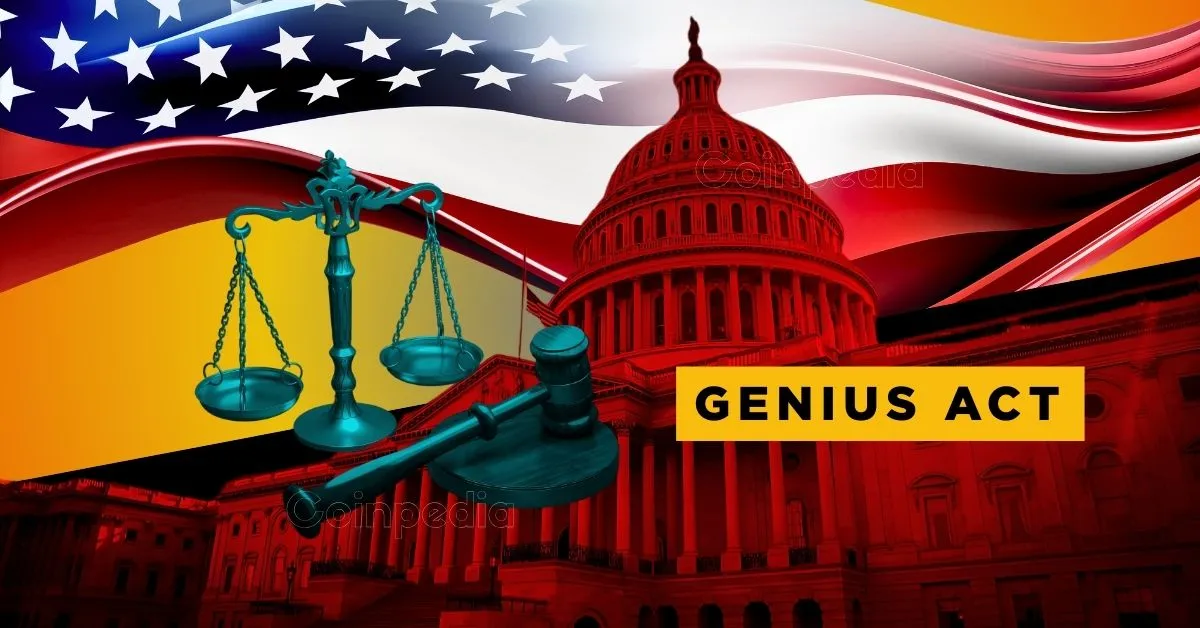Shaping the Future: The GENIUS Act’s Role in Stablecoin Regulation
The digital financial landscape is shifting quickly, and at the forefront is the burgeoning stablecoin market—digital currencies pegged to traditional fiat currencies like the U.S. dollar. With this market swelling to nearly $250 billion, the United States faces the urgent challenge of crafting regulations that balance innovation with security. The recent advancement of the GENIUS Act in the U.S. Senate represents a critical step toward addressing this challenge, marking a pivotal moment in how America confronts cryptocurrency innovation and risk.
The Rise of Stablecoins and the Regulatory Void
Stablecoins have emerged as essential tools in the cryptocurrency ecosystem, offering users price stability and seamless digital transactions. Yet, their rapid ascent has outpaced clear regulatory guidance in the U.S., leading to growing unease about investor safety, market volatility, and possible misuse. Without a federal framework, concerns loom over how to protect consumers from fraud, prevent systemic risks, and curb the concentration of market power within a sector that interfaces closely with traditional banking.
The GENIUS Act proposes to fill this void by creating the first dedicated federal oversight mechanism tailored specifically to stablecoins. Spearheaded by Senator Bill Hagerty, a Republican from Tennessee, the legislation aims to set standards for issuers, implement safeguards, and simultaneously encourage innovation within the space. This approach reflects a growing recognition of digital assets’ integral role in modern finance and a desire to integrate them responsibly into existing regulatory structures.
Navigating Political Dynamics: The Shift in Senate Support
Passing the GENIUS Act has proven no simple feat. An earlier procedural vote failed due to unanimous Democratic opposition and dissent from a few Republicans, highlighting the political complexity surrounding stablecoin regulation. However, the recent success of the cloture motion—with a 66-32 vote surpassing the required 60-vote threshold—signals a shift. Notably, over 15 Democratic senators crossed party lines to support advancing the bill, including figures like Catherine Cortez Masto and Adam Schiff. Despite this bipartisan momentum, ideological fissures remain, illustrated by Republican senators Rand Paul and Jerry Moran opposing the motion.
This evolution in voting patterns demonstrates a tacit acknowledgment across the aisle: cryptocurrency regulation cannot be ignored. While the details remain contentious, there is broad recognition that a regulatory framework is necessary to provide clarity and stability in a rapidly changing market.
Core Concerns and Compromise: The Heart of the Debate
At its core, the debate over the GENIUS Act underscores fundamental tensions about how to effectively regulate innovation without stifling it.
– Democratic Wariness: Initially, many Democrats opposed the bill due to concerns over potential favoritism towards large stablecoin issuers, some with ties to the Trump administration. This political sensitivity complicated bipartisan consensus, raising questions about transparency and fairness in the oversight process.
– Balancing Innovation and Oversight: Proponents emphasize that the bill strikes a careful balance—enabling innovation while imposing necessary protections against fraud and market instability. Critics argue the measures may not be stringent enough, fearing risks from market concentration and entanglement with traditional financial systems.
– Industry Influence: The fast growth of stablecoins has led to powerful lobbying efforts, with industry stakeholders pushing for regulations that promote U.S. leadership in cryptocurrency while discouraging companies and users from relocating to jurisdictions with looser rules.
– Negotiation Challenges: Though bipartisan committees have worked to resolve disputes through amendments, unresolved differences persist, reflecting the complexity of aligning diverse political priorities and technical considerations in a nascent regulatory field.
Political and Market Implications: A Turning Point
The Senate’s move to advance the GENIUS Act holds significant implications. It marks a clear recognition that digital assets, particularly stablecoins, cannot be left in regulatory limbo. Passing this legislation could set a U.S. standard that influences not only domestic markets but also international crypto regulation.
Bipartisan support, even if fragile, indicates a readiness to move beyond partisan gridlock in addressing cryptocurrency’s challenges. This practical stance could encourage market participants, reduce investment uncertainty, and foster a more predictable innovation environment. However, the ultimate impact depends on the bill’s final contours—especially how it manages compliance demands, enforcement, and the protection of consumers without suffocating technological advancements.
The Path Forward: What’s Next for the GENIUS Act?
With cloture invoked, the Senate is poised for detailed debates and possible amendments. Areas likely to attract focus include:
– Strengthening consumer protection measures to shield investors against fraud or collapse
– Establishing transparency and rigorous auditing for stablecoin issuers to ensure accountability
– Imposing limits on political or business conflicts of interest to safeguard regulatory integrity
– Enhancing coordination among federal regulators to create cohesive oversight without overlap or gaps
The outcomes of these discussions will be critical in determining whether the GENIUS Act emerges as a balanced, effective framework or becomes bogged down by persistent concerns and political wrangling.
Charting a New Course for Crypto Finance
The advancement of the GENIUS Act represents both a milestone and a challenge in the U.S.’s engagement with the fast-evolving cryptocurrency sphere. As the Senate wrestles with the technical and political complexities of governing stablecoins, the bill’s progression reflects a broader struggle to reconcile the promise of innovation with the realities of risk and regulation.
Ultimately, the GENIUS Act could become a landmark policy, positioning the United States at the forefront of setting global standards for stablecoin regulation. Its success will depend on how well lawmakers balance the competing demands of security, transparency, and innovation to foster a stable, trustworthy, and vibrant digital financial ecosystem. The eyes of the financial and crypto communities remain fixed on this legislative journey—one that may redefine the future of money itself.







